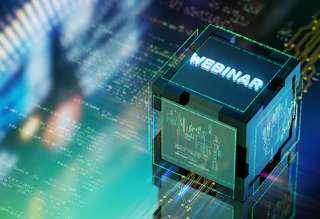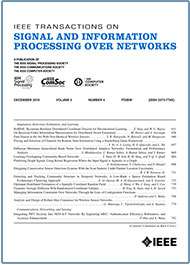- Our Story
- Publications & Resources
- Publications & Resources
- Publications
- IEEE Signal Processing Magazine
- IEEE Journal of Selected Topics in Signal Processing
- IEEE Signal Processing Letters
- IEEE Transactions on Computational Imaging
- IEEE Transactions on Image Processing
- IEEE Transactions on Information Forensics and Security
- IEEE Transactions on Multimedia
- IEEE Transactions on Signal and Information Processing over Networks
- IEEE Transactions on Signal Processing
- IEEE TCI
- IEEE TSIPN
- Data & Challenges
- Submit Manuscript
- Guidelines
- Information for Authors
- Special Issue Deadlines
- Overview Articles
- Top Accessed Articles
- SPS Newsletter
- SigPort
- SPS Resource Center
- Publications FAQ
- Blog
- News
- Dataset Papers
- Conferences & Events
- Community & Involvement
- Professional Development
- For Volunteers
- Information for Authors-OJSP
-
Home
Conferences Events IEEE Signal Processing Magazine IEEE SPL Article IEEE TIFS Article IEEE TMM Article IEEE TSP Article Jobs in Signal Processing Lectures Machine Learning Seasonal Schools Signal Processing News SPM Article SPS Distinguished Lectures SPS Newsletter Article SPS Webinar SPS Webinars SPS Webinar Series Webinar webinars
-
Our Story
What is Signal Processing?

The technology we use, and even rely on, in our everyday lives –computers, radios, video, cell phones – is enabled by signal processing. Learn More » -
Publications & Resources
-
SPS Resources
- Signal Processing Magazine The premier publication of the society.
- SPS Newsletter Monthly updates in Signal Processing
- SPS Resource Center Online library of tutorials, lectures, and presentations.
- SigPort Online repository for reports, papers, and more.
- SPS Feed The latest news, events, and more from the world of Signal Processing.
-
SPS Resources
-
Conferences & Events
-
Community & Involvement
-
Membership
- Join SPS The IEEE Signal Processing Magazine, Conference, Discounts, Awards, Collaborations, and more!
- Chapter Locator Find your local chapter and connect with fellow industry professionals, academics and students
- Women in Signal Processing Networking and engagement opportunities for women across signal processing disciplines
- Students Scholarships, conference discounts, travel grants, SP Cup, VIP Cup, 5-MICC
- Young Professionals Career development opportunities, networking
- Get Involved
-
Technical Committees
- Applied Signal Processing Systems
- Audio and Acoustic Signal Processing
- Bio Imaging and Signal Processing
- Computational Imaging
- Image Video and Multidimensional Signal Processing
- Information Forensics and Security
- Machine Learning for Signal Processing
- Multimedia Signal Processing
- Sensor Array and Multichannel
- Signal Processing for Communication and Networking
- Signal Processing Theory and Methods
- Speech and Language Processing
- Technical Working Groups
- More TC Resources
-
Membership
-
Professional Development
-
Professional Development
- Signal Processing Mentorship Academy (SigMA) Program
- Micro Mentoring Experience Program (MiME)
- Distinguished Lecturer Program
- Distinguished Lecturers
- Distinguished Lecturer Nominations
- Past Lecturers
- Distinguished Industry Speaker Program
- Distinguished Industry Speakers
- Distinguished Industry Speaker Nominations
- Industry Resources
- IEEE Training Materials
- Jobs in Signal Processing: IEEE Job Site
-
Career Resources
- SPS Education Program Educational content in signal processing and related fields.
- Distinguished Lecturer Program Chapters have access to educators and authors in the fields of Signal Processing
- Job Opportunities Signal Processing and Technical Committee specific job opportunities
- Job Submission Form Employers may submit opportunities in the area of Signal Processing.
-
Professional Development
-
For Volunteers
-
For Board & Committee Members
- Board Agenda/Minutes* Agendas, minutes and supporting documentation for Board and Committee Members
- SPS Directory* Directory of volunteers, society and division directory for Board and Committee Members.
- Membership Development Reports* Insight into the Society’s month-over-month and year-over-year growths and declines for Board and Committee Members
-
For Board & Committee Members
Popular Pages
Today's:
- IEEE JSTSP Special Series on Artificial Intelligence for Smart Agriculture
- Information for Authors
- (ISBI 2026) 2026 IEEE 23rd International Symposium on Biomedical Imaging
- Take Part in the 2025 Low-Resource Audio Codec (LRAC) Challenge
- IEEE Transactions on Information Forensics and Security
- IEEE Journal of Selected Topics in Signal Processing
- SPS BSI Webinar: Unlocking Precision Mental Health with Data-Driven Neuroimaging Biomarkers
- IEEE Transactions on Image Processing
- (ASRU 2025) 2025 IEEE Automatic Speech Recognition and Understanding Workshop
- Membership
- IEEE Signal Processing Letters
- IEEE Transactions on Multimedia
- Governance Documents
- Video & Image Processing Cup
- Editorial Board
All time:
- Information for Authors
- Submit a Manuscript
- IEEE Transactions on Image Processing
- IEEE Transactions on Information Forensics and Security
- IEEE Transactions on Multimedia
- IEEE Transactions on Audio, Speech and Language Processing
- IEEE Signal Processing Letters
- IEEE Transactions on Signal Processing
- Conferences & Events
- IEEE Journal of Selected Topics in Signal Processing
- Information for Authors-SPL
- Conference Call for Papers
- Signal Processing 101
- IEEE Signal Processing Magazine
- Guidelines
Last viewed:
- (ISBI 2026) 2026 IEEE 23rd International Symposium on Biomedical Imaging
- Regional Directors-at-Large
- Conference Call for Papers
- Call for Proposals: GlobalSIP 2017
- Call for Proposals: (SAM 2026) 2026 IEEE Sensor Array and Multichannel Signal Processing Workshop
- (ICIP 2021) 2021 IEEE International Conference on Image Processing
- Take Part in the 2025 Low-Resource Audio Codec (LRAC) Challenge
- PhD Position in Signal Processing for Privacy-Preserving Distributed Learning in IoT
- Publications
- IEEE Signal Processing Letters
- 2 PhD positions in Distributed Learning in IoT with Adversarial Environments
- Why This Signal Processing Pioneer Takes the Road Less Traveled
- Chair's Letter
- Get Involved with Technical Committees via the Affiliate TC Membership
- (ASRU 2025) 2025 IEEE Automatic Speech Recognition and Understanding Workshop
Performance Analysis of Smart Grid Wide Area Network With RIS Assisted Three Hop System
You are here
Publications & Resources
Transactions on Signal and Information Processing over Networks
For Authors
Top Reasons to Join SPS Today!
1. IEEE Signal Processing Magazine
2. Signal Processing Digital Library*
3. Inside Signal Processing Newsletter
4. SPS Resource Center
5. Career advancement & recognition
6. Discounts on conferences and publications
7. Professional networking
8. Communities for students, young professionals, and women
9. Volunteer opportunities
10. Coming soon! PDH/CEU credits
Click here to learn more.
Performance Analysis of Smart Grid Wide Area Network With RIS Assisted Three Hop System
In this paper, we investigate the performance of a wide area network (WAN) with three hops over a mixed radio frequency (RF), reconfigurable intelligent surface (RIS) assisted RF and Free space optics (FSO) channel. Here RIS and decode-and-forward (DF) relays are used to improve the coverage and system performance. For general applicability, the RF and FSO links are modelled with Saleh-Valenzuela (S-V) and Gamma-Gamma distribution, respectively. In the smart grid (SG) communication network, the smart meter (SM) communicates the information from the devices to the data aggregator unit (DAU) through the RIS-assisted RF link. As all the devices are not switched on all the time, the Markov chain is used to model the number of active devices. The DAU retransmits the data to the meter data management system (MDMS) through the FSO link, where the atmospheric turbulence and pointing error impairments exist. In this context, closed-form expressions for average bit error rate (ABER) and outage probability (OP) are derived using the H-fox function and extended generalized Bi-variant H-fox function. Here the numerical results demonstrate the effect of different FSO parameters, the number of reflectors in RIS, traffic intensity, and the number of total devices in the SG network.
SPS Social Media
- IEEE SPS Facebook Page https://www.facebook.com/ieeeSPS
- IEEE SPS X Page https://x.com/IEEEsps
- IEEE SPS Instagram Page https://www.instagram.com/ieeesps/?hl=en
- IEEE SPS LinkedIn Page https://www.linkedin.com/company/ieeesps/
- IEEE SPS YouTube Channel https://www.youtube.com/ieeeSPS
Home | Sitemap | Contact | Accessibility | Nondiscrimination Policy | IEEE Ethics Reporting | IEEE Privacy Policy | Terms | Feedback
© Copyright 2025 IEEE - All rights reserved. Use of this website signifies your agreement to the IEEE Terms and Conditions.
A public charity, IEEE is the world's largest technical professional organization dedicated to advancing technology for the benefit of humanity.











